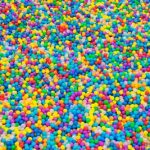Nutrients are components of food that help the body to use the energy stored in food. The nutrients in a given food are taken from the food itself or come from a chemical synthesis of the food. Nutrients in a food are separated into six classes according to their structure. They include proteins, carbohydrates, fat, minerals, vitamins, and ethanol.
Carbohydrates are sugars, starches, and fiber in animal foods. Carbohydrates are the major component in keeping blood sugar (glucose) levels high after a meal.

Proteins are compounds made up of amino acids that are found in animals and vegetable proteins. These proteins are digestive enzymes that help the body to use certain types of foods as building blocks for new proteins that do specific jobs in the body, such as building DNA, RNA, or changing blood sugar.
Fats are similar to carbohydrates in that they are chemical compounds containing fatty acids that are very long chains. Fats are used by the body as a source of energy, and as an insulating layer beneath the skin.
Minerals are large elements that come from the soil and are needed to maintain mineral balance in the body. Minerals serve many purposes in the body including serving as catalysts and reserve minerals.
Vitamins are organic compounds that come from the plant foods that we eat. We don’t actually absorb all of the vitamins present in plants but some of them do end up in our bodies.
Since we don’t absorb all of the nutrients in a food, there is a chance that we might end up getting deficient in some nutrient. In this case, the body will first use available resources in trying to access these nutrients. If the reserve supplies are not filled, then the body will take essential nutrients from the organs and bones in order to fulfill its needs.
Effee, tea, and carbonated beverages are definitely not helpful in supplying nutrients to the body. Drinks that have caffeine are diuretics anduelectric acid beverages. Foods high in acids like animal proteins, butter, and cheese would be classified as hard to digest.
To improve one’s diet, one would consume foods that are considered as hard to digest. One would also decrease the consumption of carbohydrates, fats, and popes associated with caffeine and other drugs that keep us awake. We should also consider not eating foods and beverages containing yeast and mold. This includes pickles, cheese, smoked or pickled meat and fish, canned meat and packaged breads.
We should also stay away from milk products, as their milk sugars are quickly converted to simple sugars, the body will remain thirstier for electricity, they bind with minerals and leave them useless, they promote intestinal gas and constipation, and they allow toxic bacteria to thrive.
The time factor is important
The quality of food we put in our mouths has a lot to do with what we are thinking at that particular moment. We might feel like we have eaten a great meal, but actually we have not had a good meal. The quality of food we consume affects how soon we fall asleep and how much energy we have in the evening.
A great deal of energy seems to be wasted on studying and working through the day until the last moment. A lot of us get very little sleep between meals. If we have a problem with sleeping, it might be the function of the food we eat. When we eat a lot of carbs or fat, we make them temporarily unavailable in our stomachs. As a result, instead of sleeping we are on the lookout for more food. This primitive instinct tells us to continue eating more until we find food again.
When we have a fair amount of food in our stomachs, we stop searching for more food. We might feel tired or run down from searching, but that is just the body’s way of letting us know that we need to stop eating junk food. If however you are not satisfied but you keep searching for something else to eat, chances are you will become insistent that you want to eat something sweet or salty or fatty. You will become preoccupied with some other food’s taste and not be satisfied with the taste of just one.
It’s almost like the need to move from one activity to another to find something else to fill your mind. You can think of the need to move from one place to another and think of the need to eat between meals. But when you start supplying your stomachs with good, nutritious food, your brain will tell you to keep going. It’s during that intermission when the stomach starts to let you know that it is full.
2] We are very good at making sure that the stomach feels full. By doing this, we give the stomach the signal that it is full. But not as full as it might have been previously. The cherished stomach muscles have been stretched to the point of numbness.



